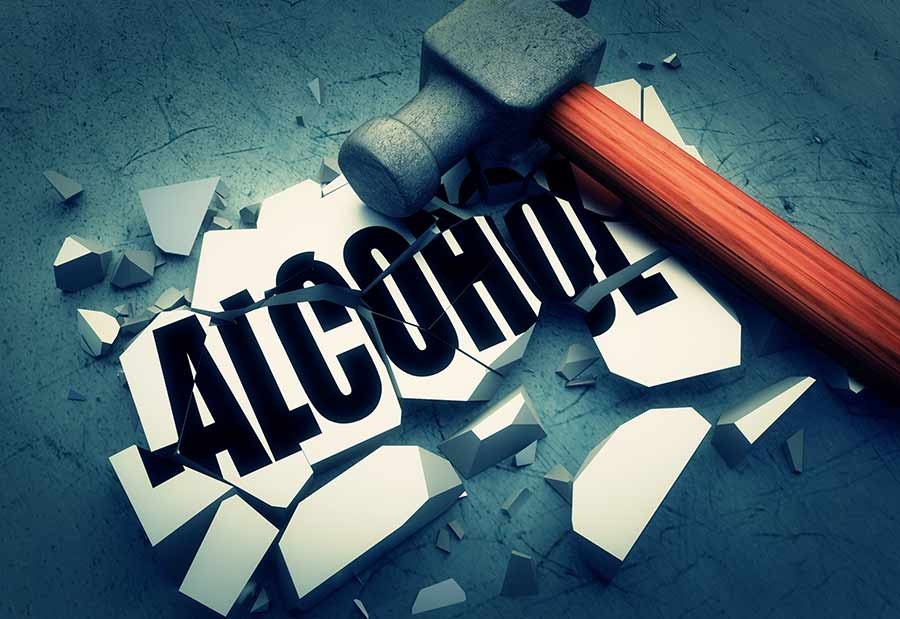What is a Holistic Approach to Alcoholism?
 Alcohol is a widely-used psychoactive substance with properties that are shown to cause addiction or dependence, thus a more comprehensive and holistic approach to alcoholism is needed to be successful. Alcohol dependence is a complex condition, people are complex too.
Alcohol is a widely-used psychoactive substance with properties that are shown to cause addiction or dependence, thus a more comprehensive and holistic approach to alcoholism is needed to be successful. Alcohol dependence is a complex condition, people are complex too.
Many in the addiction industry tend to forget these important truths and prescribe a one-size-fits-all solution. This usually consists of treatment at some sort of 12-step center followed by lifelong attendance at a support group more often than not, Alcoholics Anonymous.
This regimen works for some people but by no means all. Those who fail to respond to the 12 steps way are branded as unmotivated or unwilling. The program is not at fault but all those who cannot stay sober with it, so the thinking goes.
There is hope for these ‘unfortunates’, as the Big Book of AA charitably calls those who can’t stick to their program. This hope is self-tailored holistic alcohol treatment. A treatment regimen devised by the recovering alcoholic that embraces many different approaches to treating alcoholism.
Many studies have shown that those who are actively engaged in their own treatment are much more successful at getting and remaining sober than those who don’t. Add to this the fact that research has also demonstrated that the more approaches to alcoholism treatment an alcoholic embraces, the more likely they are to succeed and you have strong evidence for self-tailored holistic alcohol treatment.
Holistic Alcohol Treatment
What stops many from accessing these differing treatments is a lack of information and a correspondingly poor dissemination of the information that does exist. One of the reasons for this is that AA sees itself as the one-stop-shop for treating alcoholism, nothing else is needed. Its shadow obliterates all other options.
If only the claims of Alcoholics Anonymous were true, the reality is that AA has a very poor success rate; it is estimated that after 5 years only 3% of people remain sober.
Many people need more than what the 12-steps can offer. This page has been written for those looking for more than the traditional way. There is no one way to treat alcoholism, there are many. Celebrate your complexity, celebrate your uniqueness.

Barbaric or Beneficial
Aversion Therapy
Aversion therapy is popular for treating patients with addictive behaviors, like people experiencing alcohol use disorder. It works by helping the patient develop conditioned aversions to the smell, taste, and sight of alcoholic beverages. Aversion therapy has its fair share of critics. Its portrayal in the popular media, its use of electric shocks and the belief that punishing an undesirable behavior will stop it, have caused it to fall out of favor.
Yet it can help alcohol dependents as a part of a holistic alcohol treatment program. Read Aversion Therapy to learn more.
Why You Might Want To Look For Another Way”  |
Cognitive Behavioral Therapy
Alternative Alcoholism Treatment
Cognitive behavioral therapy is perhaps the best-known and most-practiced of the behavioral therapies.
It is already a part of many alcohol treatment programs and many addiction support groups also utilize elements of it.
What, however, of its potential to be a stand-alone alcoholism treatment? Can alcoholics get ‘better’ through cognitive behavioral therapy alone or can its true potential only be realized as part of a more comprehensive treatment program? Read C.B.T Alternative Alcoholism Treatment for more.
Effective Or Not?
Herbal Treatment For Alcoholism
There is no doubt that some herbal remedies are extremely effective when treating certain conditions. But what of alcohol dependency?
Herbal treatments, like using kudzu to reduces alcohol consumption in a binge drinking pattern, can be of benefit in treating certain aspects of alcoholism but only as part of a holistic alcohol treatment program. Read Herbal Treatment For Alcoholism to discover more about the specific herbs that are used in the treatment of alcohol related conditions.
Homeopathic Remedies For Alcohol Withdrawals
Conventional medicine treats alcohol withdrawals with sedatives, most commonly diazepam. Sedatives come with their own dangers, particularly if they are mixed with alcohol
There is, however, a more gentle approach to treating the symptoms associated with alcohol detox. Homeopathy is increasingly being seen as an alternative way to treat alcohol dependency. But does it work? Read Homeopathic Remedies For Alcohol Withdrawal to learn more.
Belief Is The Key
Hypnosis To Stop Drinking
Hypnosis has been prove to be an effective way to stop drinking, however, it is much more likely to work if you believe that it will work.
Expecting a practitioner of hypnosis to help you stop drinking AND give you the motivation to do so is completely unrealistic. An open mind and a willingness to change are key to gaining the full benefits of hypnosis. Read Hypnosis To Stop Drinking and discover what hypnosis involves and how to find a good hypnotist.
Get Help to Fight Alcohol Abuse
Has alcohol abuse gotten control of your life? Reach out to a dedicated treatment center today to know more about the right alcoholism treatment options for you.

I am a Mental Health Counselor who is licensed in both New York (LMHC) and North Carolina (LCMHC). I have been working in the Mental Health field since 2015. I have worked in a residential setting, an outpatient program and an inpatient addictions program. I began working in Long Island, NY and then in Guelph, Ontario after moving to Canada. I have since settled in North Carolina. I have experience working with various stages of addiction, depression, anxiety, mood disorders, trauma, stages of life concerns and relationship concerns.
I tend to use a person-centered approach which simply means that I meet you where you are and work collaboratively to help you identify and work towards accomplishing goals. I will often pull from CBT when appropriate. I do encourage use of mindfulness and meditation and practice these skills in my own life. I believe in treating everyone with respect, sensitivity and compassion.
I recognize that reaching out for help is hard and commend you for taking the first step. We have professionals available who would be happy to help you move closer to reaching your goals related to your drinking concerns. You may reach these professionals by calling 877-322-2694.
